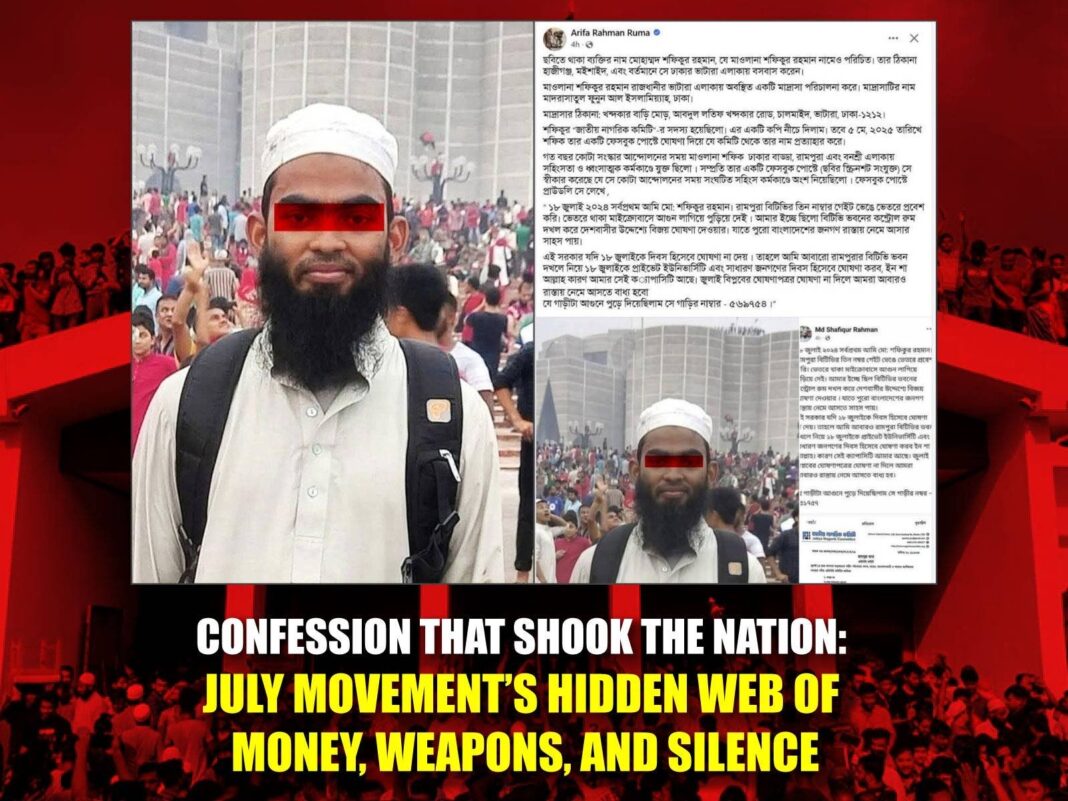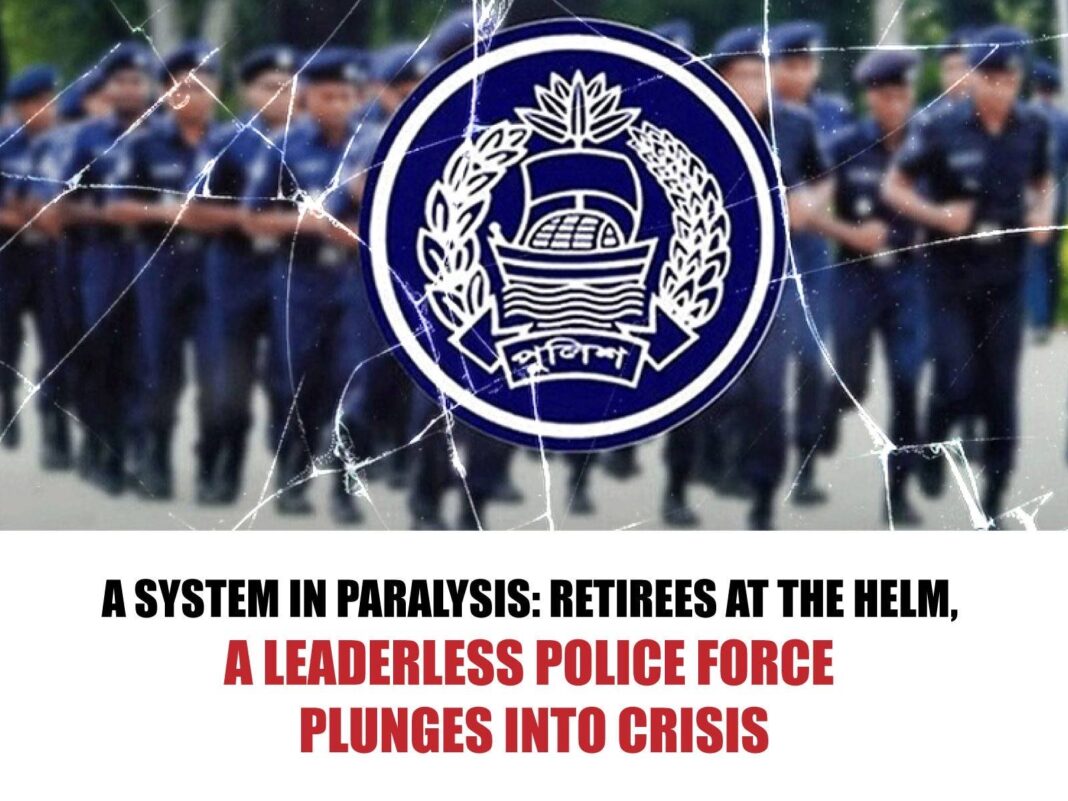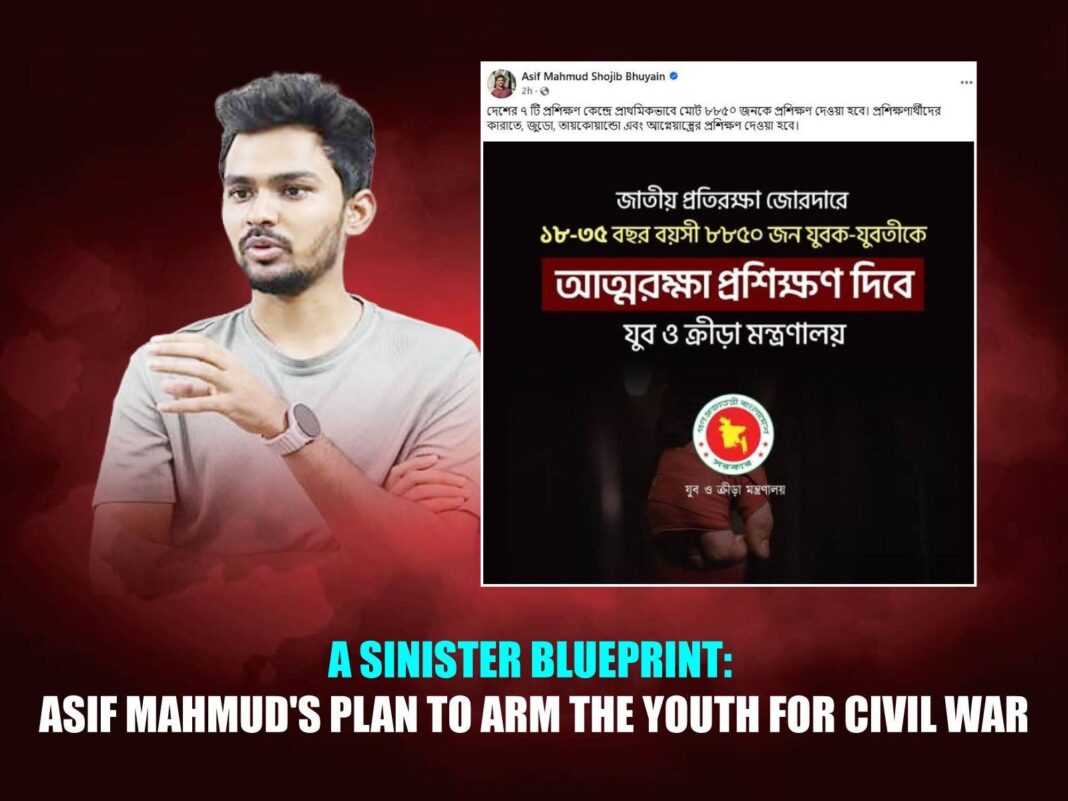July Movement’s Hidden Web of Money, Weapons, and Silence
The “July Movement” has etched itself in Bangladesh’s political history as a deeply divisive chapter. While debate still rages over the arson, violence, and alleged anti-state activities committed under the banner of political protest, a recent Facebook post has reignited public outrage.
A man identifying himself as Shafiqul Rahman, under the alias “July Warrior,” has publicly confessed on Facebook that he received funding and weapons from BNP and Jamaat during the July Movement. According to his post, the so-called protests were not spontaneous uprisings, but part of a meticulously planned campaign of sabotage.
The Architecture of Violence
In his post, Rahman alleged that the arson at Rampura Television Center, attacks near university areas, and destruction across key parts of Dhaka were all part of a “preplanned operation.”
He claimed he was sent multiple times to meet Jamaat leader Maulana Mamunul Haque to discuss “distribution of funds and violent tactics.” Rahman further wrote that money was distributed among slum dwellers and low-income groups to inflate the crowds and make the violence appear like a mass movement.
A Silent State and a Tangled Web of Allegations
Sources within law enforcement reportedly admit that no formal action has been taken against Rahman — now said to be close to certain influential circles — raising uncomfortable questions: Is justice once again being sacrificed to political expediency?
Political analysts argue that this confession exposes not only the violent underbelly of the July Movement but also a longstanding culture of impunity in Bangladesh’s politics. From 2013 to 2024, BNP–Jamaat-led protests saw repeated use of arson, petrol bombs, and targeted killings — yet justice often stalled amid political pressures.
Expert Opinions
Former civil servant Rashedul Islam observed:
“When a state fails to hold anyone accountable for political violence, justice becomes nothing more than a word on paper. Such impunity breeds future atrocities.”
Legal experts add that any movement financed by weapons and money, organized for systematic violence, should be treated as a crime against the state. They urge the formation of an independent investigation commission to uncover the truth behind the July incidents.
The Cycle of Violent Politics
Bangladesh’s struggle with political violence is not new. Since independence, power struggles, vengeance, and mutual blame have weakened the roots of democracy. The July Movement, while claiming to fight for democracy, descended into destruction, becoming another grim reflection of that legacy.
The memory of those who perished in July’s flames still asks: Will justice ever come?
Political rivalry may be inevitable — but it must never turn into anarchy.
Rahman’s confession serves as a stark warning: as long as impunity endures, violent politics will always find a way to return.
It is time for the state to choose truth and justice — not political convenience.





